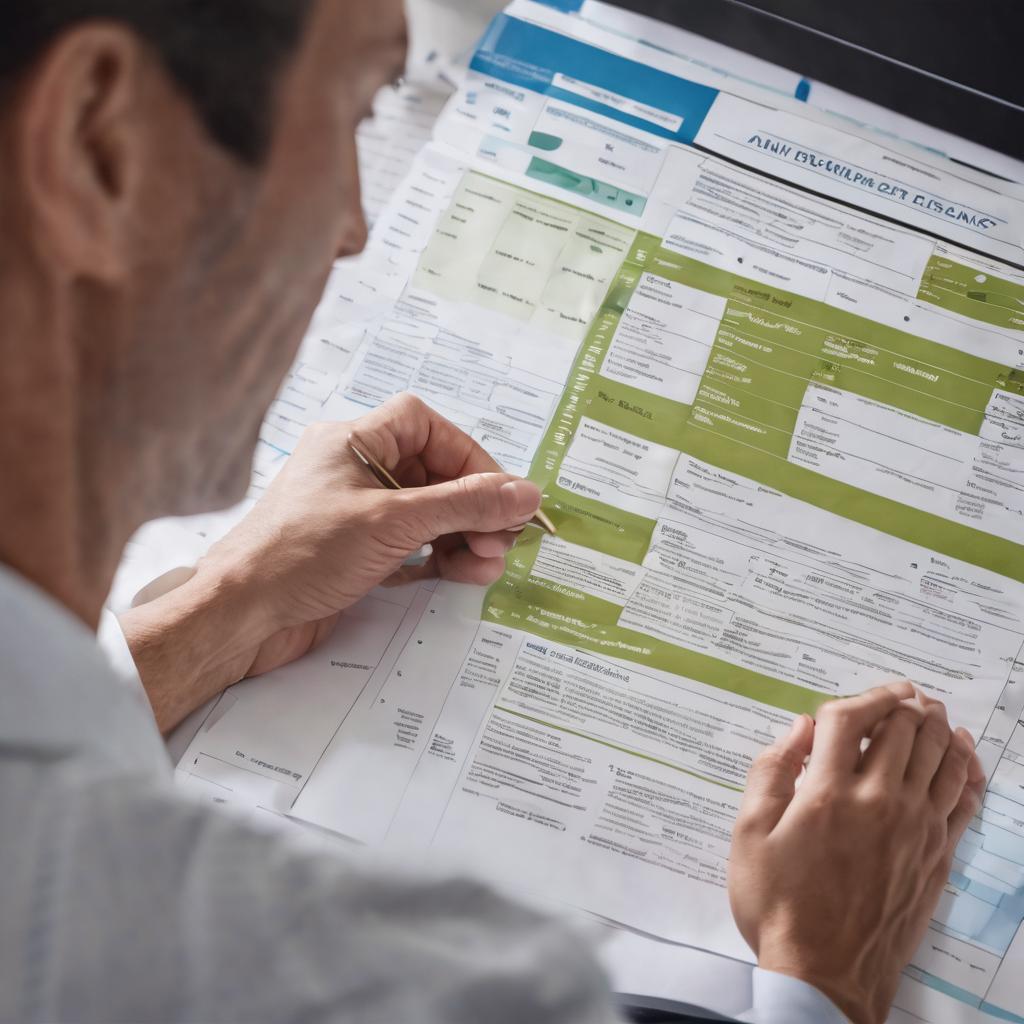The Importance of Auto Insurance Explained

Contents
- 1 Understanding the Risks on the Road
- 2 Protecting Yourself and Others with Auto Insurance
- 3 Exploring the Different Types of Auto Insurance Coverage
- 4 The Financial Consequences of Driving without Insurance
- 5 Factors Affecting Auto Insurance Premiums
- 6 Tips for Finding the Right Auto Insurance Policy
- 7 Making Sense of Auto Insurance Terminology
- 8 How Auto Insurance Claims Work
- 9 The Benefits of Having Comprehensive Auto Insurance
- 10 Auto Insurance as a Safety Net for Unexpected Situations
Understanding the Risks on the Road
The road can sometimes be an unpredictable and dangerous place. Every time you get behind the wheel, you are exposing yourself to various risks. From distracted drivers to adverse weather conditions, there are countless factors that can contribute to the likelihood of accidents occurring. Understanding these risks is crucial in order to be prepared and take necessary precautions to stay safe on the road.
One of the most common risks on the road is the presence of negligent or reckless drivers. People who are distracted by their phones or other activities while driving pose a significant threat to everyone on the road. Additionally, aggressive drivers who speed, tailgate, or engage in other dangerous behaviors can easily cause accidents. It’s important to be vigilant and aware of your surroundings to avoid potential collisions with such drivers. Factors such as poor road conditions or inclement weather can also increase the risks on the road. Slippery or icy roads, reduced visibility due to fog or heavy rain, and other weather-related conditions can make driving challenging and increase the likelihood of accidents. Being mindful of these risks and adjusting your driving accordingly is crucial for ensuring your safety and the safety of others.
Protecting Yourself and Others with Auto Insurance
Auto insurance is an essential tool for protecting yourself and others on the road. Accidents can happen at any time and the consequences can be both emotionally and financially devastating. By having the appropriate auto insurance coverage, you can ensure that you are financially protected in the event of an accident.
Auto insurance offers a safety net that helps cover the costs of repairs or replacements for your vehicle, medical expenses for injuries, and even legal fees if you are involved in a lawsuit. Additionally, it provides coverage for damages caused to other drivers, pedestrians, or property if you are found at fault for the accident. With auto insurance, you can drive with peace of mind knowing that you have the necessary protection in place to handle any unforeseen circumstances on the road.
Exploring the Different Types of Auto Insurance Coverage
When it comes to auto insurance, it’s important to understand the different types of coverage options available to you. One common type of coverage is liability insurance, which is required in most states. This type of coverage helps protect you financially if you cause an accident by paying for damages to the other party’s vehicle or any medical expenses they may incur. It’s crucial to have an adequate amount of liability coverage to ensure you’re protected in case of a severe accident.
Another type of coverage to consider is collision insurance. This coverage helps pay for damages to your vehicle if you’re involved in a collision, regardless of who is at fault. Collision insurance provides peace of mind by covering repairs or replacement costs for your vehicle, helping to minimize your out-of-pocket expenses. It’s important to note that collision insurance is usually optional but can be valuable, especially if your vehicle is newer or more expensive to repair.
The Financial Consequences of Driving without Insurance
Driving without insurance can have serious financial consequences that can affect both the driver and other parties involved in an accident. Without insurance coverage, individuals may be personally responsible for covering medical bills and property damage, which can quickly add up to substantial sums. In addition, legal fees and court costs may also be incurred if the driver is sued for damages. These expenses can be overwhelming and potentially lead to bankruptcy or financial ruin for those without insurance coverage.
Furthermore, driving without insurance can result in legal penalties and fines. Many states have laws that require drivers to carry a minimum amount of liability insurance to protect themselves and others on the road. Failing to comply with these regulations can lead to license suspension, vehicle impoundment, and even criminal charges in some cases. The financial consequences of driving without insurance extend beyond personal liability, affecting the driver’s ability to drive legally and maintain their livelihood. It is crucial for everyone to understand the potential risks and consequences of driving without insurance, and to take the necessary steps to ensure they are adequately covered.
Factors Affecting Auto Insurance Premiums
Your driving record is one of the primary factors that affect your auto insurance premiums. If you have a history of accidents, traffic violations, or other infractions, insurers may consider you a higher risk and charge you higher premiums. On the other hand, if you have a clean driving record with no accidents or violations, you may be eligible for lower premiums.
The type of vehicle you drive also plays a role in determining your auto insurance premiums. Insurance companies take into account factors such as the make and model of your car, its age, and its safety features. Generally, newer and safer cars are more likely to have lower premiums, while older or high-performance vehicles may come with higher premiums. Additionally, the cost to repair or replace your vehicle in case of an accident or theft also affects the premiums you pay.
Tips for Finding the Right Auto Insurance Policy
When it comes to finding the right auto insurance policy, there are several key factors to consider. First and foremost, it’s important to assess your specific needs and budget. Determine the level of coverage you require and how much you can afford to pay in premiums. Additionally, consider any unique circumstances that may affect your insurance needs, such as a history of accidents or traffic violations. Research different insurance providers and compare their rates, coverage options, and customer reviews to ensure you are getting the best policy for your individual situation. It may also be helpful to seek recommendations from friends or family members who have had positive experiences with their own auto insurance providers.
The next step in finding the right auto insurance policy is to carefully review and understand the terms and conditions of each policy you are considering. Pay close attention to the coverage limits, deductibles, and exclusions outlined in the policy documents. Take note of any additional benefits or add-ons that may be available, such as roadside assistance or rental car reimbursement. It is crucial to ask questions and seek clarification from the insurance provider if there is anything you are unsure about. By taking the time to carefully evaluate and compare insurance policies, you can ensure that you are making an informed decision and selecting the right auto insurance policy for your needs.
Making Sense of Auto Insurance Terminology
Understanding auto insurance terminology is essential when it comes to finding the right policy for your needs. It can often feel like a foreign language with terms such as deductible, premium, and liability coverage. However, if you take the time to familiarize yourself with these terms, you will be better equipped to make informed decisions about your auto insurance coverage.
Let’s start with the deductible, which is the amount you are responsible for paying out of pocket before your insurance coverage kicks in. This amount can vary depending on your policy, but typically, the higher your deductible, the lower your premium. Premium refers to the amount you pay for your insurance coverage, usually on a monthly or annual basis. It is important to find a balance between a premium that fits within your budget and provides the coverage you need. Another crucial term to understand is liability coverage, which is the protection that covers damages you may cause to others in an accident. This coverage helps to pay for medical expenses and property damage for which you are held responsible.
By familiarizing yourself with these and other relevant auto insurance terms, you can navigate the insurance landscape with confidence and ensure that you have the coverage you need in case of an unexpected situation. Remember, auto insurance terminology doesn’t have to be overwhelming once you understand the basics.
How Auto Insurance Claims Work
When you experience a car accident or any other covered event, the process of filing an auto insurance claim is a crucial step in getting the financial support you need. Once you have ensured your safety and the safety of others involved, it’s time to initiate the claims process. Generally, this involves contacting your insurance provider and providing them with essential details about the incident, such as the date, time, location, and a description of what happened. Additionally, you will need to provide any necessary supporting documentation, such as photos, police reports, or witness statements. This information will help your insurance company determine the validity of your claim and the coverage amount to be provided.
Once you have filed your claim, your insurance company will typically assign it to a claims adjuster. This individual will be responsible for evaluating the circumstances of your claim and determining the amount that will be covered by your policy. The claims adjuster may request additional information or schedule an inspection of your vehicle to assess the extent of the damages. It’s important to cooperate fully with the claims adjuster and provide any requested information promptly to avoid delays in the claims process. Once the assessment is complete, your insurance company will provide you with information on the settlement amount and any applicable deductibles or limitations. Remember, each claim is unique, and the timeline for resolution can vary depending on the complexity of the case and the responsiveness of all parties involved.
The Benefits of Having Comprehensive Auto Insurance
There are numerous benefits to having comprehensive auto insurance coverage. Firstly, comprehensive insurance provides protection against non-collision related incidents, such as theft, vandalism, or damage caused by natural disasters. This means that even if your vehicle is stolen or damaged while parked, you can rest assured that your insurance policy will help cover the costs of repair or replacement. Furthermore, comprehensive coverage typically includes coverage for glass replacement, which can be particularly useful if you frequently drive on roads where rocks and other debris can cause damage to your windshield.
In addition to protecting your vehicle from non-collision related incidents, comprehensive auto insurance also provides peace of mind in unexpected situations. For example, if your vehicle is damaged by a falling tree, comprehensive coverage will help cover the costs of repair or replacement. This can be especially beneficial if you live in an area prone to severe weather conditions or if you frequently park your vehicle under trees. By having comprehensive coverage, you can rest easy knowing that you have financial protection in the face of the unexpected.
Auto Insurance as a Safety Net for Unexpected Situations
Auto insurance serves as a safety net for unexpected situations that can arise while driving. No one can predict when accidents or incidents will occur, but having the right insurance coverage can provide peace of mind and financial protection. Whether it is a collision, theft, or natural disaster, comprehensive auto insurance can help alleviate the financial burden that comes with repairing or replacing your vehicle.
One of the main benefits of having comprehensive auto insurance is the coverage it provides for non-collision incidents. This includes events such as vandalism, fire, or damage caused by falling objects like tree branches. Without comprehensive coverage, you may find yourself having to pay out-of-pocket for these damages, which can be quite costly. With comprehensive auto insurance, however, you can rest assured knowing that you have a safety net to fall back on in case of these unexpected situations.






